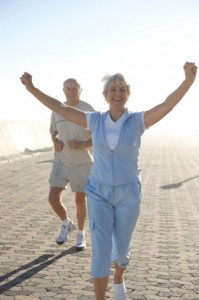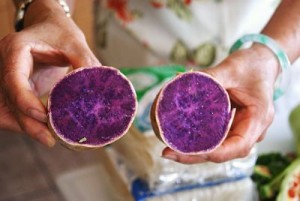Let's Get Social
-
Follow Our Travels, Learn More About Our Research & Get Notified When We Post Something New - SIGN UP HERE! Learn More
Post Categories
-
Recent Posts
- Centenarians Walk Their Way Through A Longer Healthy Life
- Okinawan Sweet Potato Boosts Your Anti-Aging Defenses
- Superfood Ingredients
- The Long Lived People Eat Nutrient Dense Foods
- Okinawan Secrets to Longevity Include Practicing Yuimaaru
- “Hari Hachi Bu” Can Help You Live Longer
- Animals Know How to Live A Longer Healthy Life
Longevity Hotspots
Post Archives
Tag Archives: longest living people
Centenarians Walk Their Way Through A Longer Healthy Life
 The ancient Greek physician Hippocrates may be well-known for his saying, “Let medicine be thy food, and food be thy medicine,” however he also said, “Walking is man’s BEST medicine.” It does not matter where in the world they live, their altitude, climate, or culture, all centenarians we have interviewed walk as a part of their daily routine.
The ancient Greek physician Hippocrates may be well-known for his saying, “Let medicine be thy food, and food be thy medicine,” however he also said, “Walking is man’s BEST medicine.” It does not matter where in the world they live, their altitude, climate, or culture, all centenarians we have interviewed walk as a part of their daily routine.
The long-lived people do not have cars, so for the most part they get around by foot, and can often be seen heading out daily to get their food and supplies, socializing with neighbors or family, or going to their gardens. They walk at least thirty minutes as a daily activity and most walked more than an hour.
While in Symi, Greece, an island known for its robust long-lived people, we interviewed Nicolas, who is “more than 97.” When asking him what he attributed his longevity to I remember him slapping his thighs, declaring they were his mode of transportation and proudly sharing that he had never been in a car, on a motorcycle or a scooter. 110 year old Bernando told us he walks two miles daily in the park near his home in Mesa, AZ.
The benefits of walking have been celebrated for centuries, and have even proven equal to vigorous exercise in many cases. Walking helps to substantially reduce the risk of diabetes, stroke and heart disease, lowers your cholesterol, and blood pressure, and a federal government report called “Stepping Out” notes that walking also reduces the risk of developing age related degenerative diseases such as osteoporosis, colon and breast cancer, and helps to maintain normal weight, healthy bones, muscles and joints.
What may contribute most to the anti-aging benefits of walking is the increased production of human growth hormones that counteract the effects of aging. An increase in the natural production of the “youth hormone” means increased muscle mass and strength, decreased fat deposits, more mental alertness, better sexual enjoyment, and elevated moods. Walking strengthens reflexes making the long-lived less prone to debilitating accidents like falling and it increases the production of endorphins which reduce feelings of depression and anxiety, while promoting a sense of well-being, explaining in part why the long-lived people are so happy.
Even in our hectic daily lives, we can find ways to get in a little walking every day by walking 15 minutes in the morning before work, getting off the bus one stop early, taking 15 minutes of your lunch break to walk around the block. Choosing the stairs over the elevator, and when you need to go to the bathroom at work, walk up the stairs to the floor above you and use that bathroom instead.
When you are traveling, walk laps in the airport, skip the moving escalators and walkways, instead opting for the stairs or the long hallway before and after flights. Use the stairs in your hotel and walk to your meetings instead of taking a cab. In the cold, walk in a shopping mall or museum, or perhaps combine your daily walking with an activity like volunteering as a guide.
Take a walk this morning for some fresh air and a clear mind before you head out to face your day and again tonight, after dinner, to unwind and relax after a full day, and begin “Walking your way to A Longer Healthy Life.”
Posted in Longevity Lifestyle Habits
Tagged a longer healthy life, anti aging longevity, long lived people, longest living people, longevity, longevity habits, longevity lifestyle, longevity research
Comments Off on Centenarians Walk Their Way Through A Longer Healthy Life
Okinawan Sweet Potato Boosts Your Anti-Aging Defenses
 In the village of Ogimi, famous for its high ratio of Centenarians, as much as three times higher than most Western Nations, Michael and I found the richly colored deep purple Okinawan sweet potato to be a staple of their daily diet. This vibrant potato, rich in flavor and packed with nutritional benefits has long been thought to be one of the reasons the Okinawans are among the world’s longest-living people and suffer far less from common diseases associated with the aging process, such as heart disease, cancer, diabetes and Alzheimer’s.
In the village of Ogimi, famous for its high ratio of Centenarians, as much as three times higher than most Western Nations, Michael and I found the richly colored deep purple Okinawan sweet potato to be a staple of their daily diet. This vibrant potato, rich in flavor and packed with nutritional benefits has long been thought to be one of the reasons the Okinawans are among the world’s longest-living people and suffer far less from common diseases associated with the aging process, such as heart disease, cancer, diabetes and Alzheimer’s.
The Okinawan sweet potato, not related to the potato, is actually part of the morning-glory family, a vine coveted for its beautiful deep purple flower. Native to the Americas, the “Okinawan” sweet potato was brought to Japan sometime between 1492 and 1605 and after World War II, became a staple of the native survivors left on the island of Okinawa because it was such a hardy crop.
Not only high in vitamin A, vitamin C and manganese, they are also a good source of copper, dietary fiber, vitamin B6, potassium and iron and have been shown to improve blood sugar regulation and insulin production. More recent studies have discovered significant antibacterial and anti fungal properties, yet another indicator of why the Okinawan Centenarians maintain remarkably vibrant health.
The primary nutritional benefit, and the one for which Okinawan sweet potatoes are especially prized, is their high antioxidant levels. Antioxidants help to guard against cancer and cardiovascular disease. Anthocyanin, the antioxidant responsible for the brilliant purple color of the flesh, is the same anthocyanin pigment that gives blueberries, red grapes and red cabbage their color. The Okinawan sweet potato actually has 150 percent more antioxidants than blueberries.
These little purple powerhouses are also a rich source of DHEA (dehydroepiandrosterone.) This is a precursor hormone – a substance that remains latent until it converts into a hormone that the body needs. DHEA can become estrogen, progesterone, or testosterone, all essential for your body’s anti-aging defenses to work. As we age, the body’s level of precursor hormones like DHEA drop dramatically in Western cultures, but drop at a much slower rate among the long-lived Okinawans, a phenomenon attributed by many to their diet rich with Okinawan sweet potatoes.
Enjoy these potatoes baked, roasted, boiled, steamed, sautéed, scalloped (with almond milk), or mashed with coconut water and sea salt. They are also great mashed with a little applesauce, cinnamon, nutmeg and grated orange zest. They make a great substitute in a sweet potato pie, or any other recipes you would normally use yams or bright orange sweet potatoes. So begin today adding the Okinawan Sweet Potato to your diet … and remember, “By birthright, we are all entitled to live A Longer Healthy Life!”
Diane Haworth and Michael Varbaek, Longevity Researchers www.ALongerHealthyLife.com











